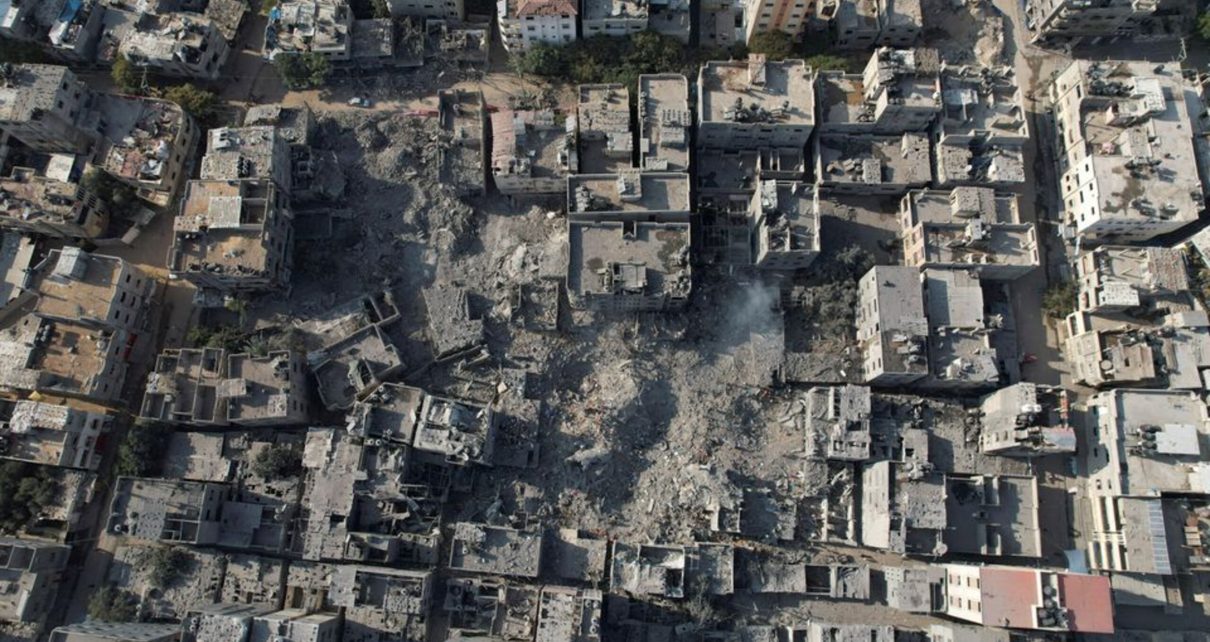As Israeli forces escalate their offensive against Hamas in the Gaza Strip, diplomats in Washington, the United Nations, the Middle East, and beyond are considering options for the aftermath if the Palestinian militant group is ousted – a task fraught with challenges.
One possibility being discussed is the deployment of a multinational force in post-conflict Gaza. There’s also talk of establishing an interim Palestinian-led administration that would exclude Hamas politicians, involving neighbouring Arab states in a stopgap security and governance role, and even temporary U.N. supervision of the territory, according to a source with knowledge of the matter.
The process is still in its early, informal “idea-floating stage.” Key questions include whether Israel can successfully eliminate Hamas and whether the U.S., its Western allies, and Arab governments would commit military personnel to bridge the gap between Israel and the Palestinians, despite their historical reluctance to do so.
The White House has clarified that, as of now, there are “no plans or intentions” to deploy U.S. troops on the ground in Gaza.
As these discussions gain momentum, the grim human toll of the conflict continues to mount. Gaza health authorities report that more than 9,000 people have lost their lives in the 25-mile-long strip of land, home to 2.3 million Palestinians. Over half of Gaza’s population is already displaced, hospitals are overwhelmed by the lack of electricity and medicine, and gravediggers are running out of space.
Furthermore, it remains uncertain whether the Palestinian Authority (PA), which has limited autonomy in parts of the occupied West Bank while Hamas governs Gaza, would be willing and able to take control. U.S. Secretary of State Antony Blinken has mentioned the prospect of a “revitalized” PA, but President Mahmoud Abbas’s administration faces accusations of corruption and mismanagement.
Whoever seeks to establish authority in post-war Gaza must also contend with the perception among Palestinians that they are beholden to Israel. The Israeli offensive against Hamas was prompted by a devastating attack on October 7, in which militants killed 1,400 people in southern Israel and took more than 200 hostages.
Even if Hamas’ leadership is removed, it would be nearly impossible to eliminate pro-militant sentiment among the Gaza population, raising the spectre of new attacks, including suicide bombings, against any emerging authority.
According to Aaron David Miller, a former U.S. Middle East negotiator, “If the Israelis succeed in crushing Hamas, I think it’s going to be extremely difficult to get a governing structure in there that is going to be legitimate and functional. The ‘day after’ exercises right now strike me as fantastical.”
These discussions have gained urgency as Israel expands its air, land, and sea assault on Gaza. Still, the deliberations have also been fueled by a perceived lack of a clear endgame articulated by Israel.
One essential realization is the immense need for international aid to rebuild Gaza, an endeavour that would be exceedingly challenging to secure with Hamas still in power.
Before departing for a trip to Israel and Jordan, Secretary Blinken emphasized that discussions in the region should encompass not only “concrete steps” to minimize civilian harm but also planning for the post-war period. He stressed that the foundation for lasting peace lies in the path toward eventual Palestinian statehood, a goal that Israeli Prime Minister Benjamin Netanyahu has long resisted.
Drawing on lessons from past conflicts, U.S. officials have privately discussed the creation of a multinational force to maintain order in Gaza. While the composition of this force could involve European or Arab countries, no government has publicly expressed interest in participating.
U.S. President Joe Biden, who ended the two-decade-long U.S. military presence in Afghanistan in 2021, is unlikely to desire direct military involvement in a new foreign conflict, especially as he seeks re-election in 2024.
Some policy analysts have proposed the deployment of a United Nations-backed force in Gaza, either a formal U.N. peacekeeping mission, as seen on the Israel-Lebanon border, or a multinational force with U.N. approval.
However, diplomats report no discussions at the United Nations regarding such a move, which would require the agreement of the 15 members of the U.N. Security Council. These missions have often encountered significant challenges. For instance, Haiti requested international assistance in October 2022 to combat violent gangs, and a year later, the U.N. Security Council authorized a foreign security mission, which faced delays in finding a leading country. Kenya ultimately stepped forward, but Haiti is still awaiting the mission’s arrival.
Complicating the situation further, Israel is likely to oppose any U.N. security role, especially after Israeli officials criticized U.N. Secretary-General Antonio Guterres for suggesting that the Hamas attack on October 7 “did not happen in a vacuum.”
Israel expects a prolonged conflict but has no interest in re-occupying Gaza.
External experts, some with influence over U.S. policymakers, have also weighed in on potential post-war scenarios. One proposal suggests that if Hamas can be disarmed and Gaza demilitarized, it could pave the way for an interim administration with a technocratic Palestinian-led government operating under international and/or regional oversight.
However, to make this work, Israel must limit its military presence in Gaza, or else any new governing body might lack legitimacy in the eyes of the local population.
In an article authored by Dennis Ross and his colleagues at the Washington Institute for Near East Policy, it is suggested that once Israel withdraws, security in Gaza could be entrusted to a “consortium of the five Arab states who have reached peace agreements with Israel – Egypt, Jordan, the United Arab Emirates, Bahrain, and Morocco.”
Nonetheless, there is scepticism regarding the feasibility of such an arrangement. Aaron David Miller, a former negotiator, now at the Carnegie Endowment for International Peace in Washington, points out that “Arab states aren’t going to put boots on the ground to kill Palestinians.”


